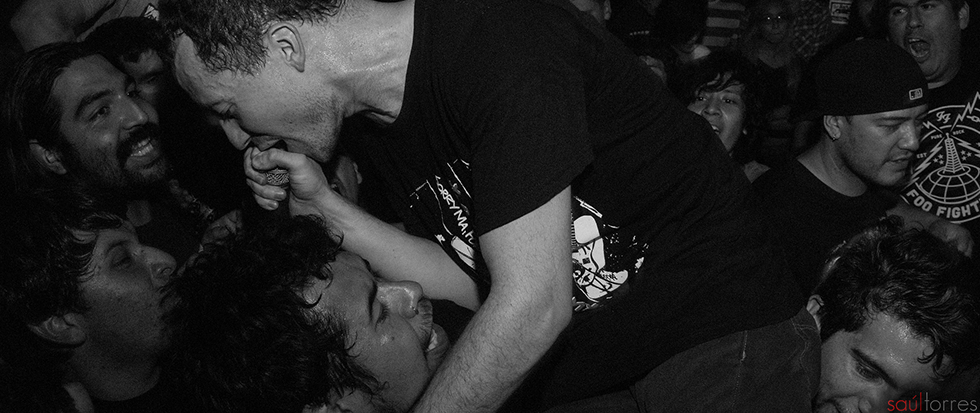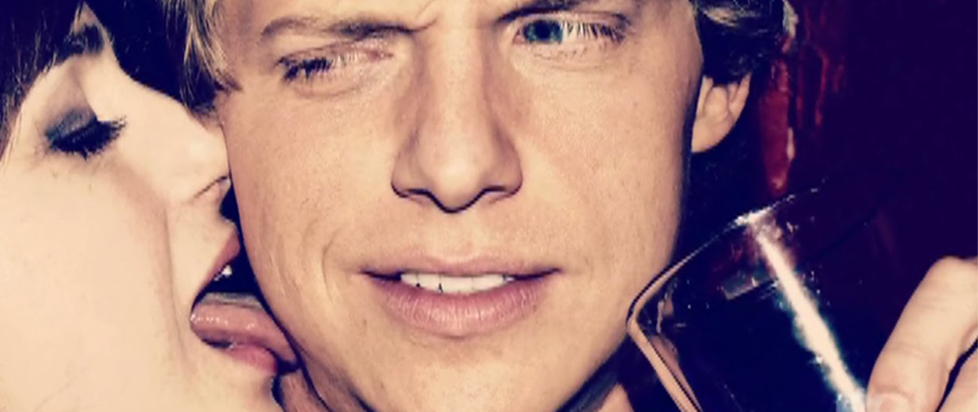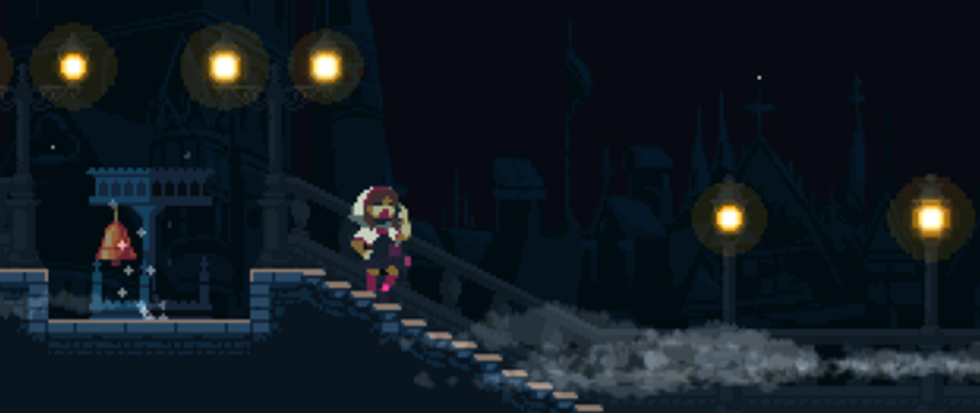
Symbiosis of the Troubadour and the Crowd
The Touché Amoré song “Skyscraper” exists, as most songs, in individual contexts. Chronologically, it was first a single in collaboration with Julien Baker, loosed late in the pre-release promotional cycle of Stage Four as a video that features vocalist Jeremy Bolm pushing an empty wheelchair through the streets of New York. The track, and the album as a whole, deals with Jeremy’s grief over the loss of his mother who died of cancer in 2014. “Skyscraper” was quite unlike Touché Amoré as previously understood, with primarily monotone-sung vocals from Jeremy and Julien’s signature glass ether until the last quarter, when Jeremy ramps into his more standard yawp.
Alone, divorced from the album, “Skyscraper” was powerful but adrift at sea, missing the vital connection to the rest of the tracklist, an epilogue heard a little too soon. Throughout the rest of Stage Four Jeremy lyrically flagellates himself for not making the most of the time he had left with his mother, as well as eulogizing her as a font of strength and inspiration. On the album “Skyscraper” is the denouement, a tribute and cathartic goodbye to Jeremy’s mother featuring the last voicemail she left him, which he mentions in the track “New Halloween” and wasn’t present in the video. It’s a mundane clip, as voicemails tend to be, not meant to be a grand statement but rather a recognition of humanity. She sounds tired, real, alive.
The third life of this song is heard in concert, where it teems with an altered energy. On this current tour Touché Amoré played it as their pre-encore closer, without Julien and rather unlike the rest of the set where Jeremy held court at the stage’s lip and thanked the congregation for making it feel like the security barrier was just a mirage. For “Skyscraper” he stood back with the mic on the stand and sang to the wings. He wasn’t hiding, but without Julien to bolster him his pained voice was buried in the mix. Jeremy was more immediately vulnerable and weathered, at least until the back half when he roared the refrain: “You / live / there / under the lights.” But he wasn’t alone, as the majority of us were right there with him, in full-throated singalong or sway-along.
Touché Amoré has been touring on this album for a year so the shine was off a bit, but the audience was more familiar and firmly entwined with the band into a performance of cathartic grief, because even if it was Jeremy’s pain on display we have all been touched by a similar loss. This band was known, as most hardcore-oriented bands are known, for group participation: group shouts, stage-dives, the physical connection between band and audience. On the other songs performed from Stage Four Jeremy was up front, eager to clasp the crowd-surfers and share the mic, to reach out with compassion and to receive that energy in return. The grief of this album paints that stage presence though. It’s not just because their music demands high-energy engagement, it’s clear in the lyrics of Stage Four and outreach of Jeremy live that touch is a key component, his work has soothed the distress of his fans and they’ve reciprocated, with the live show as an enactment of their symbiosis.
The same power of touch was present when Nick Cave & the Bad Seeds came through earlier in the summer. Cave had also suffered a loss, that of his teenage son Arthur, and though much of The Skeleton Tree was recorded before that tragedy, it couldn’t help but be suffused with that loss and sorrow. Neither Touché Amoré nor Nick Cave are strangers to the confrontation of darkness in their work, but this past year, both were more personally exposed than ever, and it wasn’t clear how their new music would translate live.
Nick Cave has always been a consummate showman, drawing from carnival barkers, travelling buskers, and swamp goth to stalk the bandstand and play it loose. And while this past tour showcased many of the hits and live staples, the Bad Seeds also delivered the majority of The Skeleton Tree, and throughout each of these songs Cave stepped up to the front and demanded the audience’s touch. Even in the companion film to that album, One More Time With Feeling, Cave took a long time to address the agony in the room, but on screen and on stage The Skeleton Tree had Cave with his hands out. He would draw fans up, caress faces and groove along, stepping down to meet the people on the floor, saying that he thrived on playing live and the spark that arcs when connecting skin to skin.
Both bands sought to tear down the barrier between performer and audience, to alleviate their pain and ours with shared experience. Even in the balconies we felt them reach out, these seasoned musicians who could have simply bleated the hits and we would have understood and applauded. But Nick Cave and Touché Amoré have earned their fans through honest expressions, powerful storytelling, a willingness to embrace the stains of humanity in order to shine light on our virtues. Neither could really be accused of dressing up in the sonics of the other, they both excavate heartache with distinctly sharp tools. They both toss a rope to those of us trapped in our own trenches. They both reach out to lift and to be lifted alike.
Header image taken by Saul Torres and used under Creative Commons Attribution. Full image can be found here.





